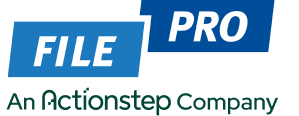To acquire new clients in a cluttered marketplace you need to invest in both online and traditional marketing – you already know this.
Yet, what happens when a prospect contacts your firm? Are your firm’s first impressions letting you down?
In a study of Australian and New Zealand law firms, Client Experience Excellence in Law (CXINLAW) found that there is a lack of focus on how prospects are treated at initial touch points.
In fact, 78% of firms failed the ‘first impression test’ – only one in five firms gained an instruction or recommendation.
Setting up a successful first impression
Is it any wonder that firms find their enquiry conversion rate languishing below 10%? This extremely low rate highlights that there are serious opportunities for growth slipping away once a firm is contacted. Even more concerning, many firms don’t even measure their monthly conversion rates, yet continue to spend on marketing – potentially wasting significant capital.
CXINLAW has been providing mystery shopping services to law firms for over 15 years. Insights from the exercise provides focus, accountability and objectivity, helping you identify gaps in your firm’s approach. Where results are communicated well, these insights can engage the entire team to drive the necessary changes.
While mystery shopping provides tailored results to each firm, we’ve found five common weaknesses across all firms at the enquiry stage.
1. Voice of inconvenience
The tone and speed of talking to enquirers may suggest that prospects have interrupted your busy day, creating doubt about how much care they’ll receive as a client.
2. Lack of interest
Some lawyers don’t ask or use the prospects name, show no empathy with their prospects situation (e.g. ‘Congratulations on your new home’) or demonstrate any interest in finding out more from them. A failure to build rapport can mean that these prospects will politely end the call and contact the next firm on their list.
3. Confusion
Many staff members overlook the importance to identify themselves or their role to the caller, especially if they are the intermediary between reception and the lawyers. Make sure you set context to be clear on who you are and why you’re asking certain questions.
4. Failing to position the firm’s value
This isn’t ‘selling’. This is a genuine statement about the value your firm will bring to the prospects matter and why your firm is best placed to handle it.
5. Taking control
Too often, initial calls end with the prospect being expected to initiate the next step. At the end of the discussion summarise the conversation, next steps, preferred contact details and timeframes.
Even if your firm isn’t suitable for the prospect, let them know why and who they should consider as an alternative. This will leave a positive impression of the firm and help with future referrals.
The three critical areas of client experience
Using mystery shopping insights, there are three critical areas of assessment in order to enhance your client experience.

CXINLAW’s mystery shopping packages have been developed based on 15 years experience and are tailored to each firm. As a result, CXINLAW clients leverage business development, gain market advantage and increase firm profitability by investing in Client Experience Excellence. A focus on improvement delivers up to 20% increase in new matters and 33% increase in profits. Culturally, the results trigger a firm-wide transformation to enhance the team’s capabilities, processes and communication skills.
To find out more about mystery shopping, contact Carl White or join one of our free monthly webinars on Client Experience Excellence.
About Carl White
Passionate about the impact of Client Experience Excellence in professional services, Carl White co-authored the highly-regarded ‘Customer Experience in Law’ report in 2012 and led the market-leading Australian research in 2015 that examines the Client Experience Advantage for law firms, in association with ALPMA.

